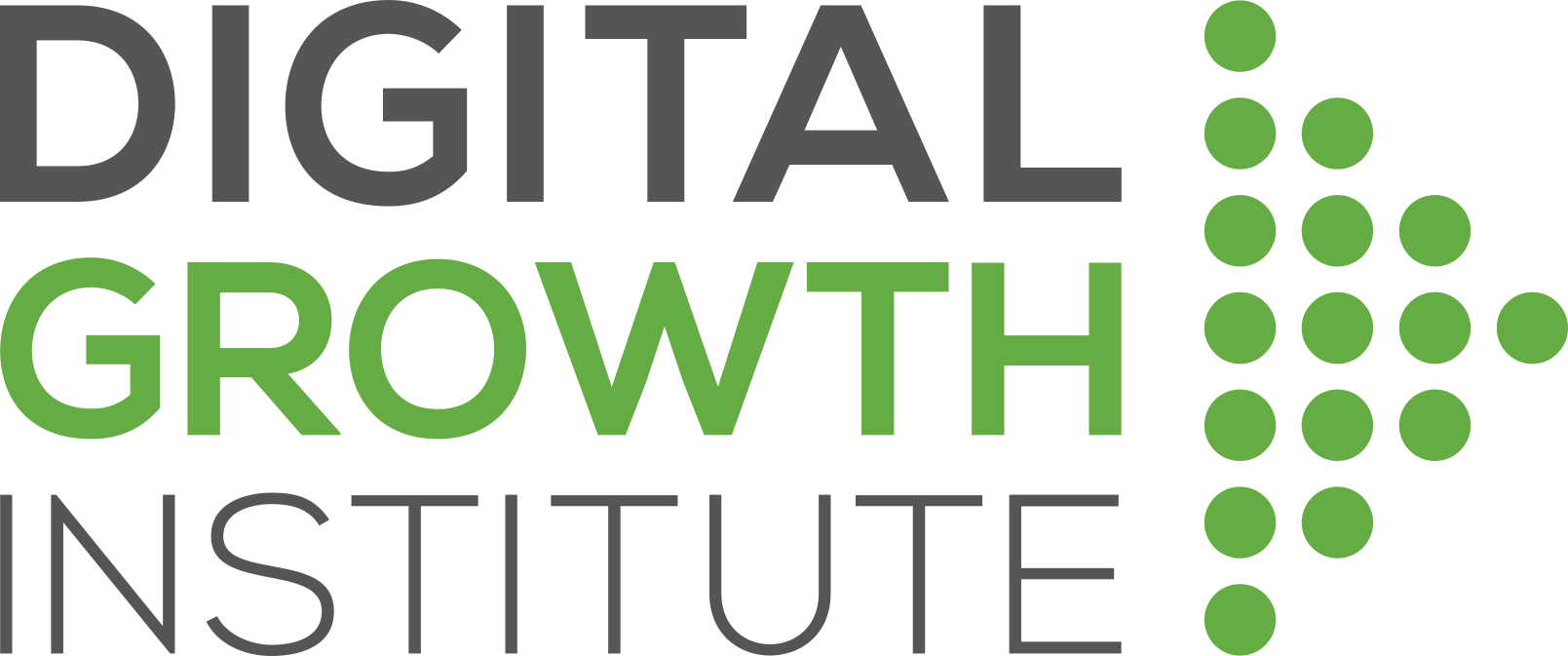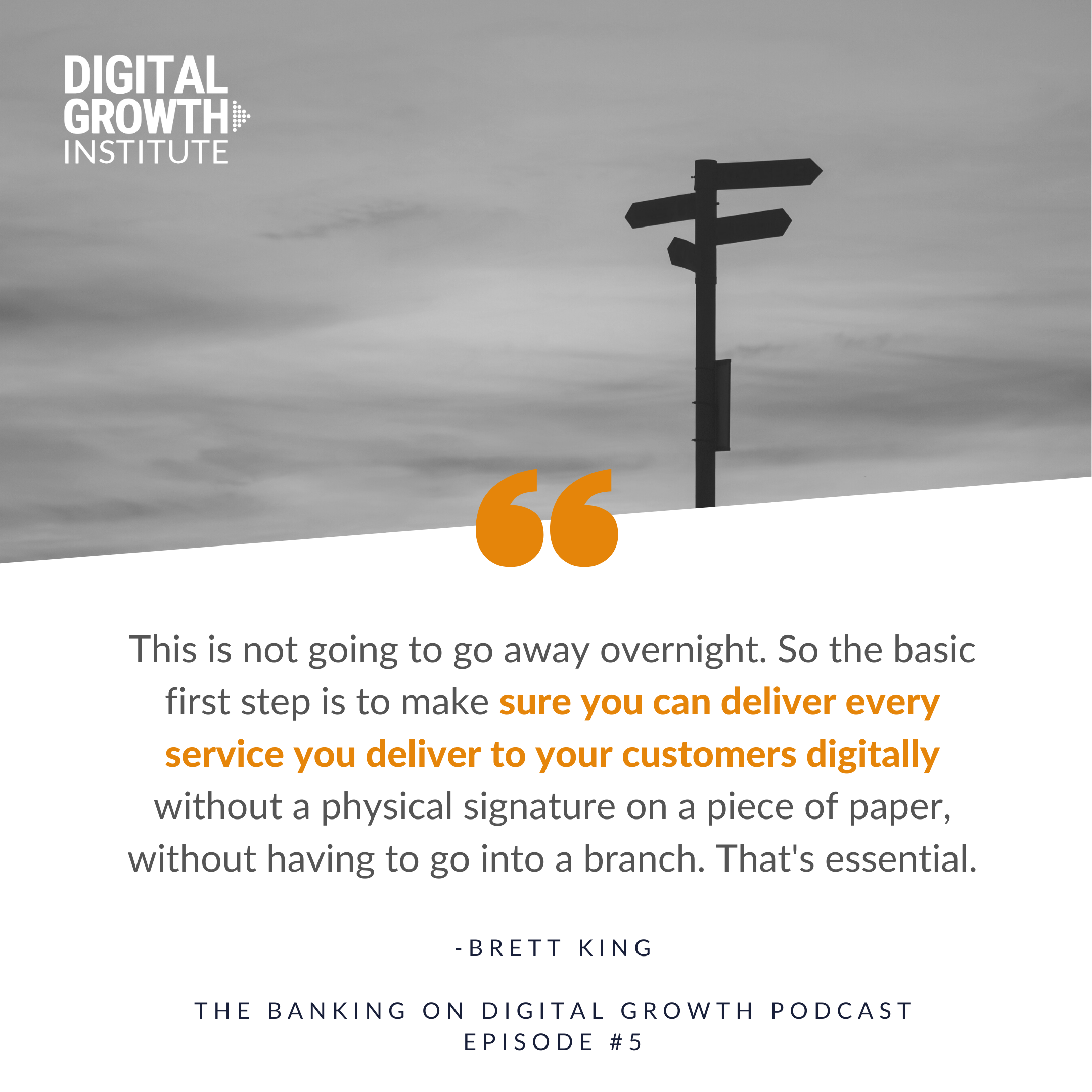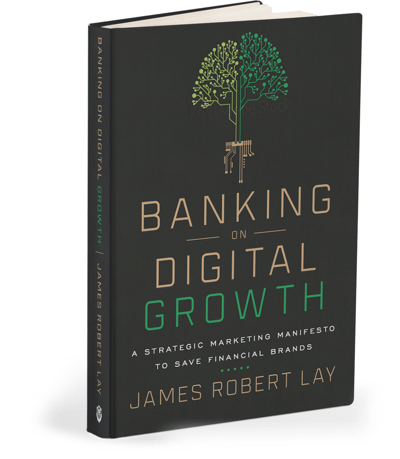
Brett King, founder of the neobank Moven, joined James Robert Lay on the Banking on Digital Growth Podcast, to discuss the systematic issues and failure points on how we have adapted to the coronavirus.
As a world-renowned futurist, speaker, and international bestselling author, Brett is optimistic that society will ultimately learn from the environmental changes we are facing post-COVID-19. The pandemic has taught us that complacency is dangerous in a world where traditional models are being replaced by automation and smart technologies at a rapid pace. A pace that can be difficult to keep up with.
The new normal is here.
And the new normal will continue to transform and evolve.
COVID-19 is an Opportunity to Accelerate Banking Forward
Things are not going to be the same ever again like they were before COVID.
But here’s the good news…
It’s ok.
We’re going to be OK even though there is no roadmap to lead us through the unchartered waters we are forced to face.
As Brett reminds us, “We’ve already shown how digital can be utilized in the case of the coronavirus shut-ins, and it's shown people that we can be just as effective working remotely.”
The transformation we’re experiencing in banking is also happening in education at this very moment. The idea that a classroom could function successfully in a virtual-only space was hard to comprehend. Sure, college and high school courses have been offered online for decades, but expecting a kindergarten student to receive quality lessons through an iPad seemed irrational.
Teachers across the world took offense to such expectations.
But guess what?
Educators are adapting.
They are exploring engagement and communication strategies from a computer screen. Many forward-thinking school districts were already rolling out online learning platforms prior to COVID-19. Teachers were experimenting with the “flipped classroom” approach and encouraging the use of online discussion boards. What we are seeing now isn’t exactly new, but rather accelerating what we were already putting in place.
A large question many other organizations face is whether an office space or building is necessary. I predict we see many vacancies over the next few years as businesses revolutionize their models of operation. Companies will find that brick-and-mortar locations may not be the best monetary investment. They will find that employees can be just effective, if not more, with the freedom remote work offers. We will see companies take a look internally and develop more efficient practices and procedures.
Taking a look at job loss, or job displacement, COVID-19 is obviously having an impact on unemployment rates, but what about the idea of artificial intelligence, AI? Jobs are going to be disrupted with or without the coronavirus because we are in this new era of the fourth industrial revolution. Exponential technologies such as machine learning, AI, virtual reality, the Internet of Things, etc. are becoming substitutes for labor, causing the collapse of businesses.
The changes that we feel forced upon us are preparing us for the exponential transformations that the fourth industrial revolution will undoubtedly bring, regardless of a pandemic.
COVID-19 is truly an opportunity to accelerate banking forward as we all can continue work together to continue to transform banking for good.
Keeping a Sense of Community in a Digital-First Environment
Particularly now in this post-COVID-19 world, a community is something that humans long for. An emotional connection. A sense of belonging. The feeling that you matter. People still want to get together. People still want to hug and shake hands.
Imagine a new neighbor moving in next door. As you greet them and introduce yourself (mask on, six-feet away!), did you naturally begin extending your hand out for a friendly handshake before settling for a wave instead?
Is it possible that switching to a wave, or another social gesture, rather than a handshake, hug, or high-five becomes the new societal norm?
People are communal creatures.
And the financial brands that recognize and build strategies around digital communities will leap ahead in the months and years to come.
Look at the Peloton, the $2,000 stationary spin bike, that has fascinated the world (or become a very expensive valet). Prior to COVID-19, they were able to take a sense of community that was previously only achieved in a gym and bring it completely digital. The massive library of content, personalization, and social integration are key to their success. With over one-million members, Peloton has shown us that engaging a digital-first model and keeping a sense of community is entirely possible.
Let’s apply this to banking. Will people ever go back to visiting branches like we used to? My guess is probably not. And the key here is “not like we used to.” When there are environmental changes, there are behavioral changes. The branch may not be dead. But it will be changed.
As technology improves, it's clear that it becomes easier and more simple to bank, and as Brett suggests, one of the only reasons we used to go into the branch was because it was so complex and difficult to accomplish certain tasks in the past. There were compliance rules and processes and policies we had to adhere to. Brett reinforces that as technologies are developed and designed to remove friction out of the system, we will see consumer behavior changing.
How can banks and credit unions keep a sense of community as face-to-face models become less utilized?
Listen to: Face-to-Face Communication in a Socially-Distant Age
Moving Your Financial Brand Forward in a Digital-First World
Leap ahead three years in your mind.
How would you feel if you found there was no physical signature required to open an account or apply for a loan at your financial brand?
What if you no longer had any physical branch locations?
How must your systems and processes evolve for you to maximize your digital growth potential?
That’s when, Brett continues, the “real fun begins.”
Once the systems and processes are in place. Once the groundwork has been established. Then we can focus on the user experience and the differentiation of each consumer journey. The opportunities to map out the digital experience based on behavioral triggers are limitless.
Digital differentiation is critical for future design models looking for exponential growth.
This article was originally published on August 24, 2020. All content © 2024 by Digital Growth Institute and may not be reproduced by any means without permission.






